Markus Ernst is currently a research assistant at the Frankfurt Institute for Advanced Studies (FIAS), where he works on object recognition within the scope of the EU horizons 2020 project GOAL Robots. Following up on his master’s research, Markus continues to investigate how recurrent connections in artificial neural networks benefit the recognition of partially occluded objects. Additionally, he develops novel unsupervised learning (contrastive learning) approaches to cope with sparsely labeled data.
Markus Ernst holds a master’s degree in physics from Goethe University Frankfurt, where he worked with professor Jochen Triesch on occluded object recognition with deep recurrent neural networks. Before joining the Triesch Lab, he obtained a bachelor’s degree under the supervision of professor Joachim Curtius at the Institute of Atmospheric and Environmental Sciences. Markus studied meteorology, psychology and physics in Frankfurt, Darmstadt and Toronto.
Current Occupation
- Research Associate at the Frankfurt Institute for Advanced Studies
- Working at FIAS / Triesch Lab on AI, Occluded Object Recognition and Developmental Robotics
- Interested in AI, Reinforcement Learning, Recurrent Neural Networks
Publications
- Aubret A.*, Ernst, M. R.*, Teuliere C., & Triesch, J. (2023). Time to Augment Visual Self-Supervised Learning. In Eleventh International Conference on Learning Representations (ICLR). (* indicates equal contribution.)
- Mattern, D., López, F. M., Ernst, M. R., Aubret, A., & Triesch, J. (2022, September). MIMo: A Multi-Modal Infant Model for Studying Cognitive Development in Humans and AIs. In 2022 IEEE International Conference on Development and Learning (ICDL) (pp. 23-29). IEEE.
- Ernst M. R., Burwick T., Triesch J. (2021) Recurrent processing improves occluded object recognition and gives rise to perceptual hysteresis. Journal of Vision https://doi.org/10.1167/jov.21.13.6.
- Schneider F., Xu X., Ernst M. R., Yu Z., and Triesch J. (2021), Contrastive Learning Through Time. SVRHM 2021 workshop@NeurIPS.
- Ernst M. R., Triesch J., Burwick T. (2020). Recurrent Feedback Improves Recognition of Partially Occluded Objects. In Proceedings of the 28th European Symposium on Artificial Neural Networks, Computational Intelligence and Machine Learning (ESANN2020)
- Ernst M. R., Triesch J., Burwick T. (2019) Recurrent Connections Aid Occluded Object Recognition by Discounting Occluders. In: Tetko I., Kůrková V., Karpov P., Theis F. (eds) Artificial Neural Networks and Machine Learning – ICANN 2019: Image Processing. ICANN 2019. Lecture Notes in Computer Science, vol 11729. Springer, Cham https://doi.org/10.1007/978-3-030-30508-6_24
- Wagner, A. C., Bergen, A., Brilke, S., Fuchs, C., Ernst, M., Hoker, J., Heinritzi, M., Simon, M., Bühner, B., Curtius, J., and Kürten, A.: Size Resolved Online Chemical Analysis of Nano Aerosol Particles: A Thermal Desorption Differential Mobility Analyzer Coupled to a Chemical Ionization Time Of Flight Mass Spectrometer, Atmos. Meas. Tech. Discuss., https://doi.org/10.5194/amt-2018-116, 2018.

